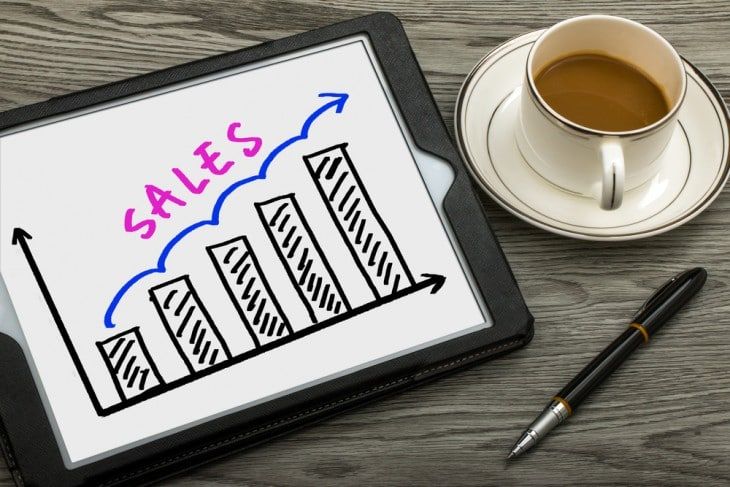If you were to ask someone in the street what the most challenging part about sales was, chances are they would say "convincing people to buy." However, in reality, persuasive selling is only half of what is needed to succeed. Turning leads into clients is much more complex. This article will cover relationship selling - a process that leads to more conversions.

Have you ever seen a successful salesperson or entrepreneur, listened to their pitch, watched what they do, and wondered how are they doing that? It sure looks like it's magic. I'd give anything to be able to sell with that level of confidence, motivation, influence, enthusiasm, and consistency. You might think this is impossible to learn or teach. It turns out that the way these people do business can be broken down into simple yet powerful strategies anyone can learn.
In this article, we cover the following topics:
- What is relationship selling?
- Learn the basics about relationship selling
- Understand that a sale starts at a point of contact
- Implementation Strategies for Relationship selling
- Talk to customers to get an idea of what they want
- How to use relationship selling for your business?
- Tips on how to use Relationship selling
- Benefits of Relationship selling
- Learn how relationship selling is an art and not a science or a trick
What is relationship-selling?
Relationship selling works on this principle: what's more valuable – what people think of who they are?
Relationship selling is a sales strategy that focuses on building trust and rapport with customers. Relationship-selling is about building long-term relationships with customers. A relationship can be created in person, via email, telephone, or social media. Relationship selling aims to create an ongoing conversation with the customer that builds trust and helps you deliver more value to them.
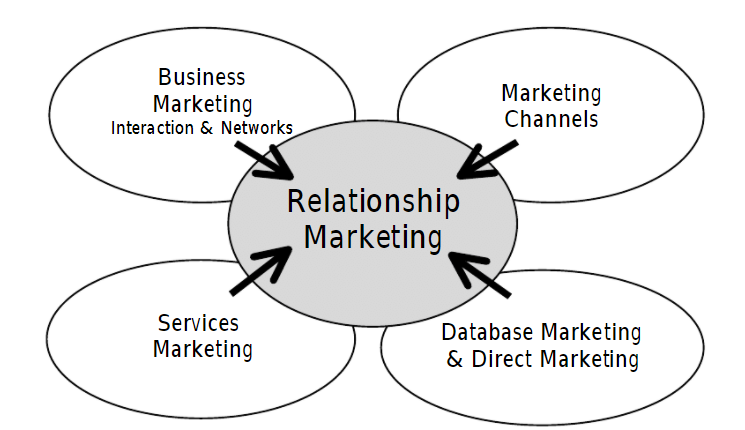
Source: relationship selling
Let's say your objective is to sell wine. The one-shot approach would be to take what you know about wine, apply it to the characteristics of the product you want to sell, and come up with a message that will appeal directly to the buyers.
The relationship approach would be to take what you know about people and determine how best to approach them. You might have information about their age, sex, income, family situation, education level, hobbies and interests, along with a dozen other characteristics. And you'll have a pretty good idea of the kind of lifestyle they're trying to achieve.
What's more important – what do they think about wine or what do you know about them? If your goal is to persuade them that a particular wine is right for them, what do they think about the wine or what you know about them?
Learn the basics about relationship selling
Relationship-selling means that you always focus on building solid relationships with each of your customers. You don't pitch them; you don't try to persuade them; you connect with them.
But how do you do this? How do you build a relationship with someone who has never met you before? There's no magic formula for doing this; it's more about attitude than specific actions. Just follow these five guidelines:
- Listen to what your customers tell you they want and how they would like things done
- Provide them with the information they need when they need it
- Build your business around their wants and needs rather than yours
- Use technology to make it easier for them to do business with you rather than harder
- Make sure that the entire experience is convenient, smooth and hassle-free for them
You can then measure your success by using metrics such as:
- Customer retention rate
- Customer lifetime value
- Customer referral rate
- Number of touchpoints per customer
- Percentage of repeat purchases
- Share of purchases from new customers
Understand that a sale starts at a point of contact
The point of contact is the first physical or psychological break in your customer's day. It can be a conversation at a business lunch, a phone call from a telemarketer, or a newspaper ad. It can be a conversation with a customer service rep or an appointment setter.
When you are trying to sell something, you are trying to start a conversation about what the person wants and needs, not what you want or how good your product is. You can't do that until you know what they need and want. And you can't find that out until the conversation starts.
Relationship selling is about building and using a network of contacts. It starts before you first speak to the person who will decide to do business with you.
Implementation Strategies for Relationship selling
Relationship selling is salesmanship at its best. It's about building relationships that will help your customers buy products or services, or that might even help them solve problems they didn't know they had.
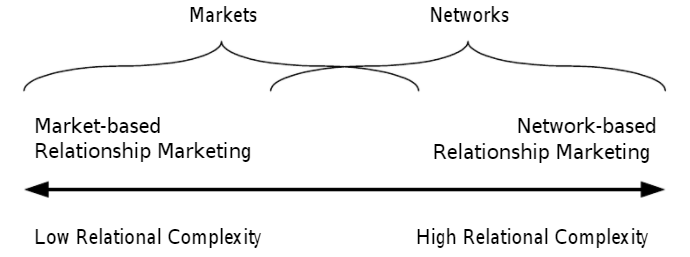
Source: relationship-selling
Here are three ways to implement relationship-selling in your business:
- Build relationships with customers by asking questions like, "Why did
- you choose this product/service/company?" and "How can I help you today?" This way, you build trust and let them know you're interested in their needs.
- Listen closely to customers' responses. Then use what they tell you to build a stronger relationship. For example, if they mention that they enjoy biking or hiking, send them an article about mountain trails for their area or an invitation to a local bike shop for repairs.
- Offer unique services to customers to show that you appreciate them as individuals and attract new business partners. For example, if your business specialises in employee benefits, offer your services at no cost to select individuals
Talk to customers to get an idea of what they want
One thing that sets high performers apart from their peers is that they are great listeners. They are masters of conversation, using the art of asking questions to get people talking about themselves. They are experts at interpreting body language and seeing what lies behind it. And they use all this information to find out what is going on with the other person.
Truly effective salespeople do this before they have sold a single widget or delivered a single service. They do it because they know that the more they know about the other person, the more likely they will win them over.
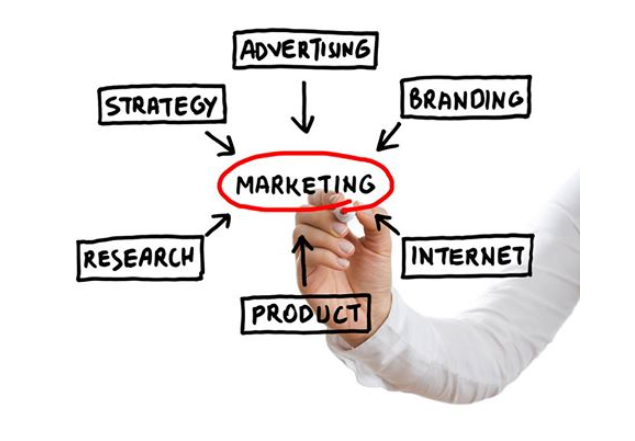
Source: market research
When you're selling something, you want to know how it will be used, who will use it, when, where, how often, how much money is available to spend on it, etc. Asking all these questions allows you to relate your product/service to your customers in a way that conveys your knowledge rather than your ignorance.
But there's another reason why truly effective salespeople ask lots of questions in addition to wanting to learn about their customers: It helps them listen better. It's complicated -- well, it's impossible -- to be listening if you're waiting for your turn to talk or thinking about what you're going to say next.
How to leverage relationship selling for building better connections with prospects?
Relationship selling is the recognition that there is no one-size-fits-all approach to sales. It's about helping buyers find the solution that fits their needs. And it's an opportunity for you to understand your customers truly—and in turn, deliver a product or service that genuinely meets their needs.
The technique is not an off-the-shelf system; it's an approach. Think of it as the difference between following a recipe and mastering a craft. Anyone can follow a recipe; it works every time. But mastery takes deep understanding—grasping why things work the way they do, what flavours blend best, and how each new element will affect the result.
You can close the deals better with the following key contributors:
- Trust – Customers will trust you if they believe you have their best interests at heart. When they trust you, they feel more confident to buy from you again.
- Loyalty – If customers feel happy to buy from you again and again, you'll cultivate a loyal customer base who will stick with you for a long time.
- Longevity – Repeat customers spend more money over more extended periods. They'll keep coming back to buy from you time and time again – even if there are other providers out there who offer the same products!
- Referrals – By building good relationships with your customers, they will be more likely to recommend you to friends, colleagues and family members who may be looking for similar products or services as themselves.
How to use relationship selling for your business?
Relationship selling is a marketing strategy that focuses on developing and nurturing relationships. It is about building trust and confidence between you and your customer. Relationship selling is not just about what you sell but also about how you sell it.
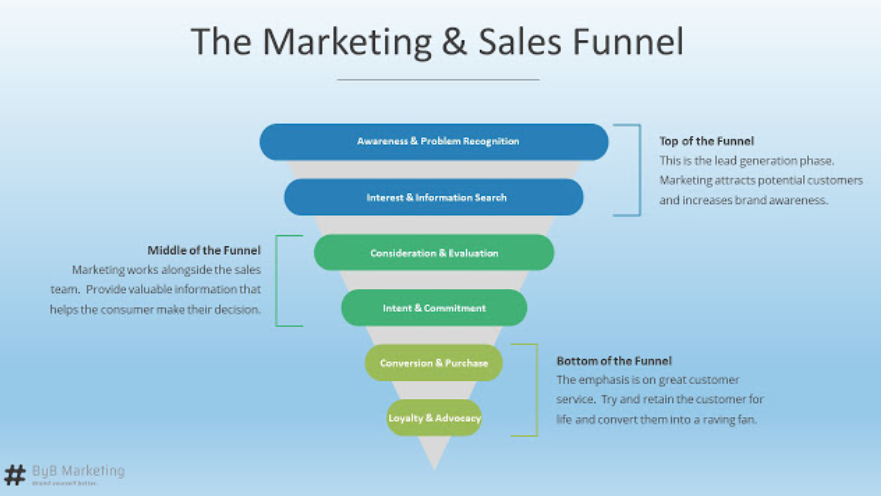
Source: relationship-selling strategy
Relationship selling is a method of converting a product to a customer through a relationship where some level of trust has been developed between the two parties. It's a five-step process:
- The salesman must establish a relationship with their prospect by building rapport and trust with them while simultaneously selling themselves as an expert in their field.
- The salesman then makes an effort to understand their prospect's needs and feelings about their purchase, allowing them to adjust their pitch accordingly.
- Once the salesman has gained the prospect's trust, they can begin making recommendations for products that will be most beneficial to them based on their needs and wants.
- The salesman will then try to close the deal by asking for the sale directly or indirectly while providing evidence of how purchasing their product will benefit the prospect somehow.
- The salesman should follow up after the sale with a gift or some form of additional perk to cement their relationship with the customer and deepen their loyalty to your company or organization.
Tips on how to use Relationship-selling
Understanding relationship selling and how to use salespeople and business owners need to know. For many years, relationship-selling has been used by salespeople who want to build strong relationships with their customers. This method of sales presentation is also known as consultative selling or consultative sales model.
The relationship seller will learn about the customer's business, what type of products they sell, where they sell them, and what quantity.
These tips will help you to achieve better results through relationship selling, and in the long run, they will save you time and money:
- Don't sell; help
- Be an information source, not a product pusher
- Use discovery questions to learn about your prospects' real needs
- Learn the art of demonstration--the only way to overcome objections
- Ask for business when your prospect is ready to buy; don't push too hard too soon
- Keep in mind that it's okay to be a little "pushy"
- Always close the deal yourself; don't let someone else do it for you
Benefits of Relationship-selling
Here is a sales technique wherein a salesperson builds a relationship that encourages a customer to buy a product or service. For a salesperson, one of the most important aspects is to enhance the ability to connect and convert. This can be accomplished through relationship selling. It often uses a consultative approach, which helps salespeople explore a customer's needs to find solutions.
Relationship selling is not just about creating customer loyalty. It also helps you develop new markets for your products and services, find new suppliers, and reduce your business costs.
- An effective way of connecting with your customer
- Allows you to understand your customers' needs better
- Helps you create profound experiences for your customers
- You maintain control over your sales process
- Provides you with more opportunities to convert sales
- Builds trust with your clients
- Generates higher profit margins for businesses
Learn how relationship-selling is an art and not a science or a trick
There is a saying that "Selling is an art and not a science", and relationship selling is the art of making the customers feel like they're buying from someone more than just a vendor.
A trick is something you use to fool someone else into doing what you want them to do. Sort of like magic, but it's just an illusion. Art is something that takes real skill and talent like music or painting or playing baseball. Relationship selling takes real skill and talent because it requires constant attention and effort, and thoughtfulness on your part.
The customers' needs are so different from each other that your efforts to sell to them will be as well. The way to satisfy those needs will differ from customer to customer, so it's essential for you as a business person to understand what those needs are.
If you talk to a car salesperson, he will tell you that the key to selling a car is to connect with the customer. He can't just show you a car and say, "Would you like to buy this car?" Instead, he has to build a relationship first. If he does that, then when he brings out the glossy brochures and starts talking about all the features and benefits of the car, it will be easier for him to close the sale.
The same is true for any salesperson. A relationship must be built before you can sell anything. However, the reasons it must be created and how it must be done vary greatly depending on what you are selling and who you are selling to.
There are two basic types of sales: relationship and transaction. Relationship sales focus on building long-term relationships with customers, so they keep coming back for more. Transaction sales focus on quickly getting people who don't know or care about you to give you something of value.
Wrapping Up
The basic idea of relationship selling is that you don't try to sell something to someone; you try to help them solve a problem. If you do that, then if you find they need what you're selling, they'll buy it from you because now they see you helping them solve their problem.
What's excellent about relationship selling is that it doesn't require a massive investment of time and money, and it can be applied in any business or industry.
How Deskera Can Assist You?
Whether you are a sales manager or running your own business, there are tons of duties and responsibilities that you have to fulfill. Using the Deskera CRM system, you can manage your contacts, leads and sales deals. You can use the CRM system to manage all customer data and manage your leads, deals and your sales quota.
Doing so will help you to save the time taken in transferring customer data between the different systems. Having a good CRM system will help you manage your financial and sales reports and be prepared to kick-off your meetings.
Deskera can also assist you with real-time updates about your business like cash flow status, customer satisfaction, inventory management, sales, purchases, purchase orders, customer tickets, customer satisfaction, managing leads, revenues, profit, and loss statements, and balance sheets.
Moreover, it would also help in integrating sales methodology across different platforms onto one system so that you have a consolidated list for email campaigns, leads management, and sales pipeline to mention a few.
It will also help you to sync between your orders, payments, taxes, refunds, product variants, sending out invoices and reminders, facilitating invoice management, and even undertaking follow-ups and advertisement campaigns.
Such a consolidated platform will help you to improve your sales through building effective sales compensation plans and also facilitate faster and well-informed decision-making. It will help you in strengthening your opportunities and being braced for the threats.
Deskera books and Deskera CRM will also be able to ensure the highest customer satisfaction and thereby an increase in net revenues and net profits.
Key Takeaways
Relationship-selling, as the name suggests, is all about building a relationship with your customers. This means that you have to look at things from their point of view and try to understand what they want, need and expect from you or your company. This also means that you have to find a way to go above and beyond their expectations.
Taking advantage of Relationship-selling techniques can help you improve your sales and customer retention rates. It takes creativity and the sense to adapt to ace the art of relationship-selling.
- You can achieve this goal through effective selling processes and techniques such as:
- Being genuinely interested in the buyer/client and his business.
- Listening to understand their needs.
- Providing solutions based on the buyer/client's needs.
- Following up to ensure customer satisfaction.
- Empathising with the client's situation and helping him resolve issues.
- Discovering ways to add value.
- Creating long-term relationships with clients by giving them good service; relationships that grow into solid bonds and trust; and then finally into referrals and recommendations to others.
Deskera CRM and Sales Pipeline can supplement the relationship-selling process by giving the customer a sense of comfort during the sales presentation. The salesperson takes the time to get to know the customer's needs and interests.
Related Articles
